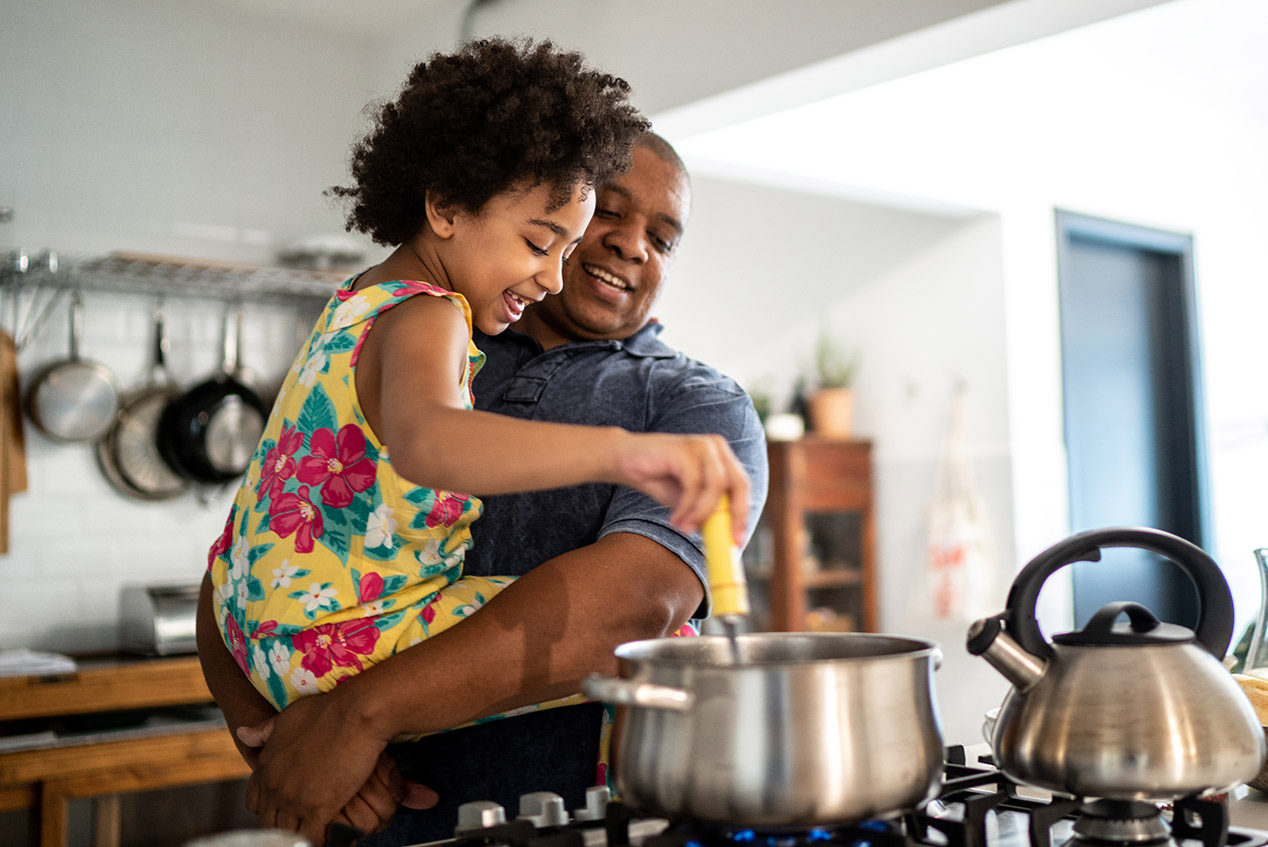 Photo: FG Trade / E+ / Getty Images
Photo: FG Trade / E+ / Getty Images
Although thinking about the possibility of a house fire is never fun, it’s immensely important to have a plan. Preparedness keeps your family and housemates safe and makes it easier for firefighters to protect you.
Not only do you need to educate your family members or roommates to make sure everyone is on the same page about fire prevention, but it’s also helpful to have an escape plan.
Safety Tips to Prevent House Fires
 Photo: AndreyPopov / iStock / Getty Images Plus / Getty Images
Photo: AndreyPopov / iStock / Getty Images Plus / Getty Images
Below are some must-know tips and free resources to help avoid, educate, and manage the unfortunate occurrence of a fire.
1. Be Smart About Fire Alarm Installation
Not all smoke and carbon monoxide alarms are created equal. Make sure you purchase one that has a long battery life and be sure to properly install it. Remember to put them on each level of your home. Also, install an alarm that has flashing lights and/or vibrations, in addition, to sound if a family member has a hearing impairment.
2. Consider Getting a Residential Fire Sprinkler System
The cost of installation for a fire sprinkler ranges between $211 and $960. If the air temperature rises to a dangerous level, these systems will alert you.
3. Limit Candle Usage
Candles are one of the worst offenders when it comes to causing house fires. If you absolutely need them, just be diligent about safety. Never put them on flimsy or uneven surfaces: Keep them away from loose fabric, and set a reminder to put them out before bed.
4. Be Mindful When Cooking
Being negligent about open flames and high heat levels when cooking can lead to unfortunate accidents. Clear away flammable items, such as oils and seasonings like garlic and cinnamon, from hot surfaces to avoid issues. Also, keep a fire extinguisher near the kitchen.
5. Distance Space Heaters
Make sure space heaters are three or more feet from combustibles. Also, make sure you’re checking that the cord is in good shape—frayed cords can be especially dangerous with these high heat appliances.
6. Be Careful About Dryer Lint
Many people underestimate how dangerous it can be to have an overabundance of lint in the dryer. Cleaning your dryer’s lint trap is an easy way to prevent a fire from occurring.
7. Hire a Chimney Sweep Yearly
Invest in the cost of chimney cleaning and be sure to have fireplaces, wood stoves, and central furnaces serviced annually.
8. Properly Store Gasoline
Store gasoline in a high-density polyethylene (HDPE) container, which can withstand the heat from the environment. Having this container and a designated space in a garage or shed will reduce the threat of fire.
9. Position Barbecues, Cookers, and Fryers Safely
Keeping hot appliances three feet away from your house’s exterior and surrounding shrubs is a good rule of thumb to prevent fire hazards.
10. During the Holidays, Use Decorations Safely
Be careful not to use too many lights on a Christmas tree. If it’s real, water it often, and don’t keep the tree too close to any heat source.
11. Remove Items From Overwhelmed Outlets
Crowding multiple plugs in the same outlet is never a good idea. Simply split them up to reduce the load—even if it’s inconvenient.
12. Only Use Bulbs With the Right Wattage
Certain light fixtures and lamps require certain wattages. A wrong match poses a serious fire threat.
13. Avoid Using Extension Cords Whenever Possible
Toasters, irons, and space heaters are particularly difficult culprits to deal with. If there’s any way to work around having to use an extension cord, try to make it happen with a creative solution.
14. Monitor the Condition of Your Current Bulbs and Light Fixtures
Flickering or randomly dimming lights could be an ominous indication that you have an electrical issue in your home, which could create a fire hazard.
15. Watch Out for Occurrences of Tripped Circuits or Blown Fuses
If you’re frequently blowing a fuse, it might be a sign that something is faulty in your home’s electrical system. You’ll want to get your home checked out by a professional electrician near you.
Fire Safety Tips for Kids
Not only should you do your due diligence to prep your house with the appropriate fire safety measures, but it’s equally important to speak to children about safety measures. The below tips are children-specific and will help make sure every family member is prepared in case of an emergency.
16. Ensure Children Know to Follow the Escape Plan
Creating and going over a family escape plan together is the best solution. Use our printable below to map out your floor plan and safe escape routes.
17. Remove or Cover Stove Knobs
This fire safety tip is particularly important for pets, toddlers, and young children, who may touch appliances and leave them on without you even realizing it.
18. Keep Matches Away from Children
Remove matches from easily accessible drawers. Also, remove lighters from the vicinity of where kids spend their time in the house.
19. Make Sure Children Know to Call 9-1-1
If your kids are ever alone and start a fire, be sure they know who to call.
20. Make Learning Fun
Get kids discussing fire safety and learning about the ways to escape, firefighters, and other elements through things like coloring, reading picture-filled books, and more. Download our activities below to start this important conversation in a fun way.
How to Create a Family Fire Safety Plan
- Get out of bed using stop, drop, and roll: Since you want to decrease the amount of smoke you inhale, roll out of bed and crawl to the nearest exit to escape.
- Learn how to open doors during a fire: Carefully feel the temperature with the back of your hand and check for smoke before rushing into another room to escape. You could potentially use windows to escape if it’s necessary and safer.
- Ensure there’s a family meeting spot: Whether it’s an area down the road or a neighbor’s house, be sure you’re on the same page about where to meet. This ensures no one is lost and confused in the event of a fire.
- Agree to stay put once you’ve made it to safety: Make sure everyone agrees not to re-enter the burning home and to resist the urge to try to save any items besides themselves.
Once everyone in the family is aligned on general knowledge and safety protocol should a fire arise, it’s important to establish a definitive, mapped-out safety plan. Use our template below so the whole family is on the same page.
No Comments Yet
Sorry, comments for this entry are closed at this time.
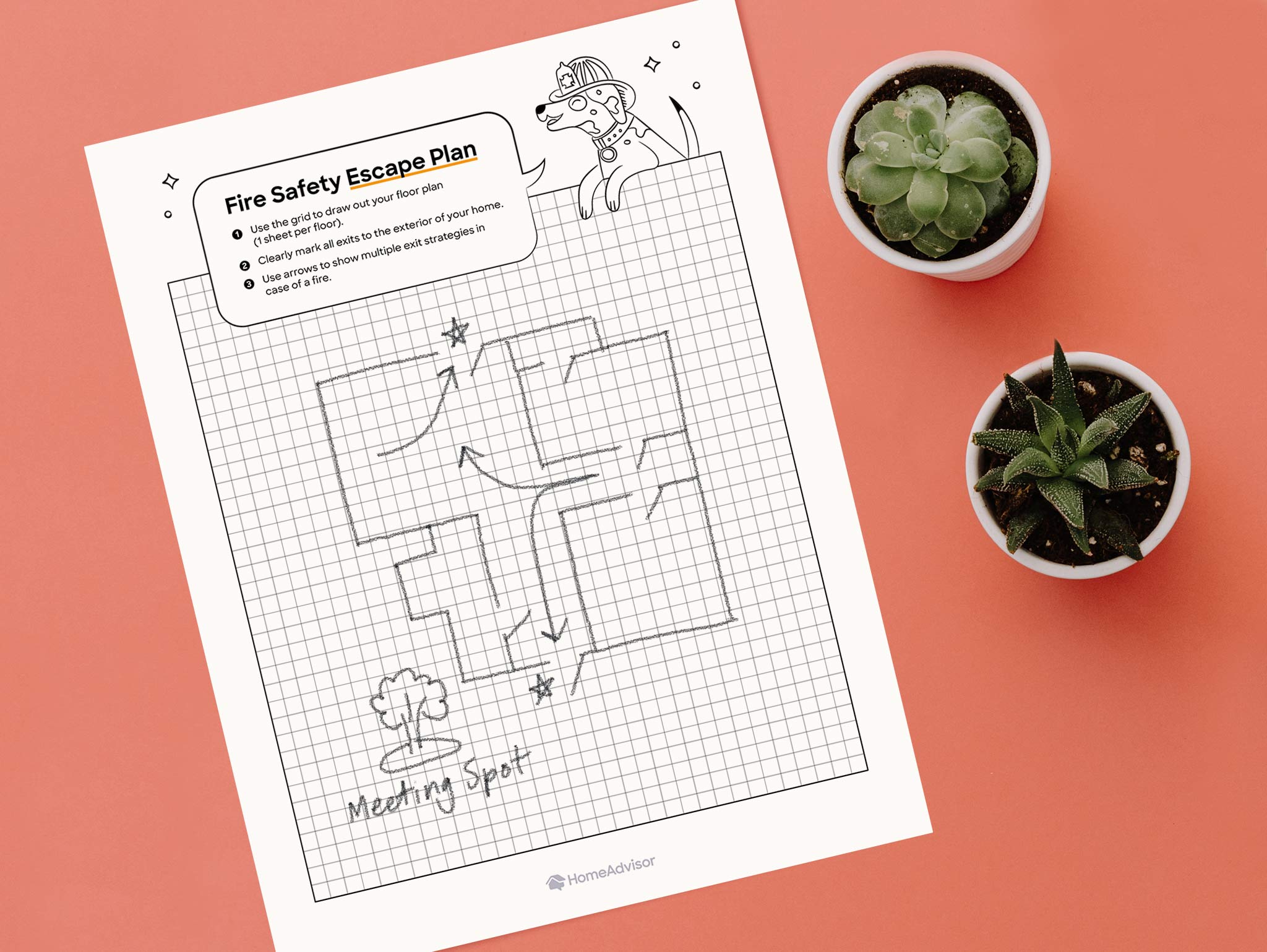

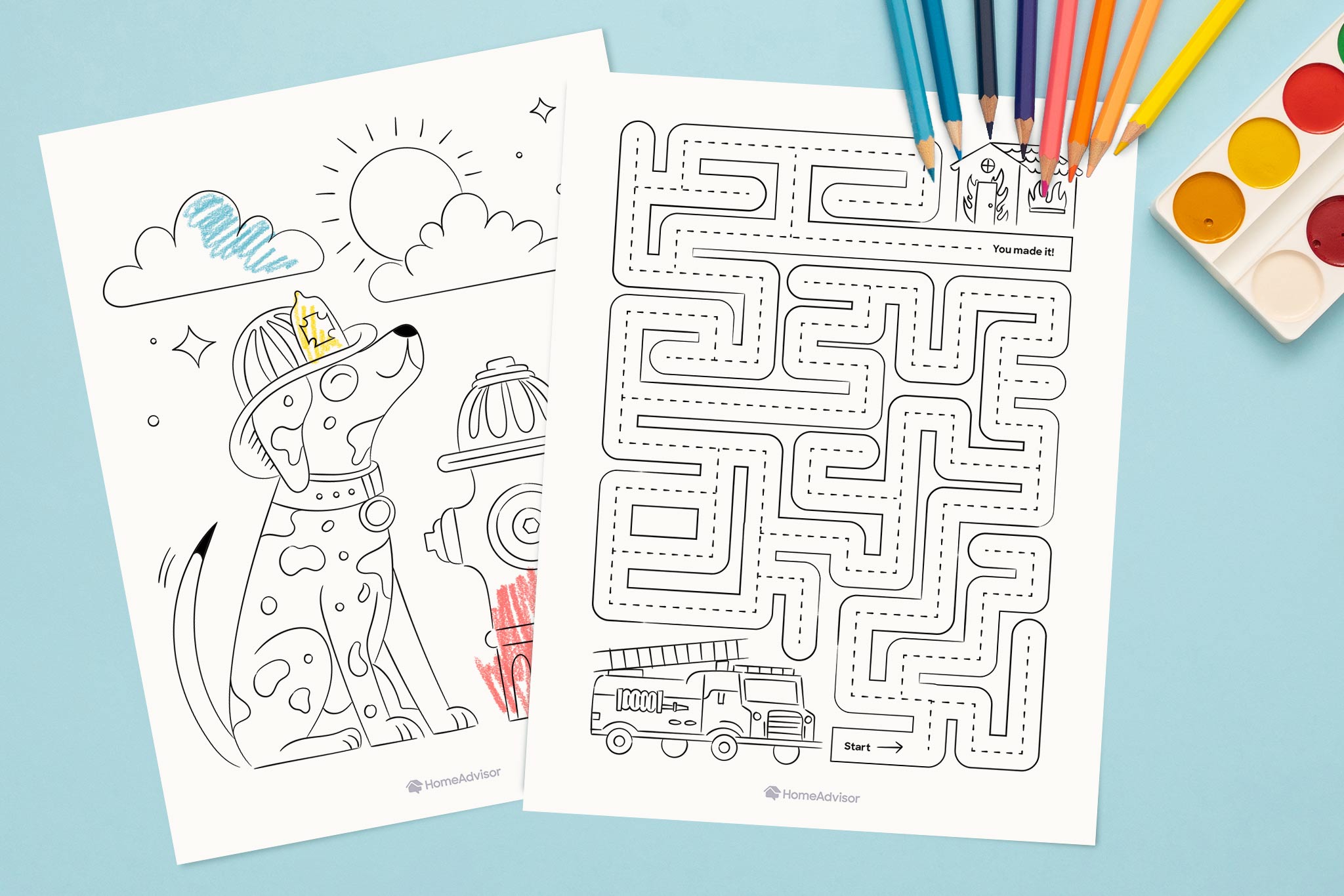

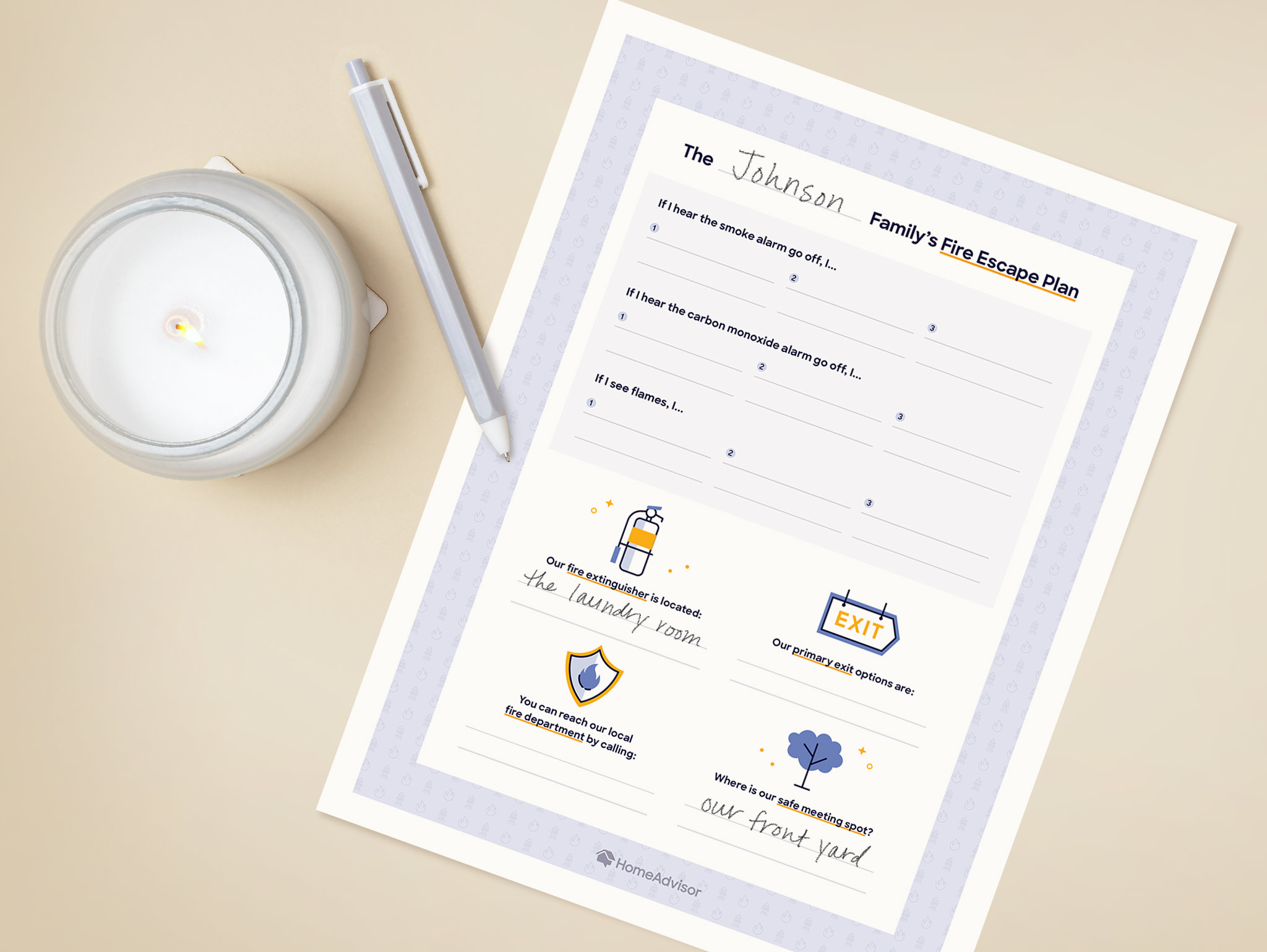

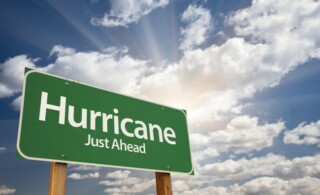 Hurricanes for Kids – Safety Resources, Facts & Projects
Hurricanes for Kids – Safety Resources, Facts & Projects  Holiday Gifts in Danger?
Holiday Gifts in Danger?  Home Design for Fall Prevention for Seniors
Home Design for Fall Prevention for Seniors 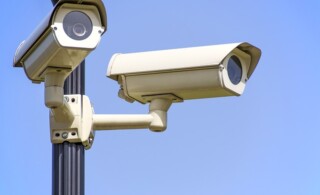 Home Alarm Installation: Keep your Family and Property Safe
Home Alarm Installation: Keep your Family and Property Safe  How to Safeguard Your Home Against Burglary & Crime
How to Safeguard Your Home Against Burglary & Crime 
